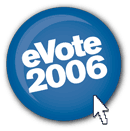
 |
Building critical mass, vote by voteYour involvement in this fall’s Council election is vital to the ability of the teaching profession to self-regulate. Your vote helps to build critical mass and gives weight to Council recommendations to government.by Marilyn A. Laframboise |
Last year, when the former Minister of Education announced that he wanted to revitalize the College, we created an ad hoc committee, consulted widely in the sector and gave him our recommendations.
We never heard back.
On a separate occasion last year, a ranking Ministry official challenged senior staff at the College in answer to a question about possible changes to regulations. “Why,” staff were asked, “should the Minister listen when so few vote in your elections?”
It was a stinging rebuke. I disagree vehemently with the thinking. But such is the harsh reality of politics. It’s easy to be dismissed if you don’t have critical mass.
The College has in excess of 200,000 members, representing educators from every type of school and school system in Ontario. When Council makes a policy decision or recommends a course of action to the government, it does so with the full force of a body duly constituted in law to regulate the profession of teaching in the public interest.
Fewer than five per cent of the membership voted in the 2003 College election. Even so, that meant that thousands of eligible College members cared enough to cast a ballot in support of a colleague. It meant that thousands cared enough to think the work of the College to set professional standards, enforce licensing requirements, accredit teacher education and exercise discipline where warranted was important. Not for a moment though did the voter turnout affect the commitment or diminish the contributions of those who were elected to serve.
It’s easy to be dismissed if you don’t have critical mass.
With recent changes in legislation, the government has given the profession what it said it wanted. It has expanded the number of elected Council members by six positions, giving a slight majority to working teachers. In so doing, it has ostensibly further buoyed the ability of Council to speak out on issues of importance to teachers and Ontarians.
The College had 42 candidates running for 17 positions in the 2003 election. Six of those candidates were acclaimed. That simply isn’t good enough for the country’s largest self-regulatory body.
Now, with 23 elected positions, there is a great need to increase the number of candidates in each category. More than ever, it is critical that electors have a choice of whom they vote for to serve on Council.
In this special edition dedicated entirely to the nomination process, you will learn about the 23 electoral categories and what you need to do to be nominated. It may appear overwhelming at first glance, but we’ve done our best to ensure you have everything you need to get your nomination in on time.
Calling an election at the end of a school year is not what we had originally planned. It is far from the ideal time to fill out nomination papers or to chase down signatures from potential supporters. It’s the calendar that Council approved after requests by the government to delay the election as long as possible to permit the passage of Bill 78 and the approval of regulatory changes that allow us to run the election.
Your involvement and your vote ensure that your voice is respected.
I believe that professional and public interests are best served by an engaged, participating electorate. Critical mass does not legitimize the concerns of those who vote. However, history and politics have proven that critical mass matters.
Asking whether enough people have voted is akin to asking whether the College is fit for democracy. The question is wrong. The College does not have to be judged to be fit for democracy, rather it has to become fit through democracy.
Self-regulation gives us all the privilege of shaping our profession the way we think best. Your involvement and your vote ensure that your voice is respected.
This is a monumental opportunity. I urge you to run, to nominate a colleague and to vote.









